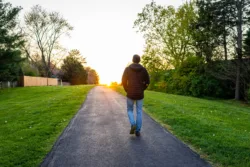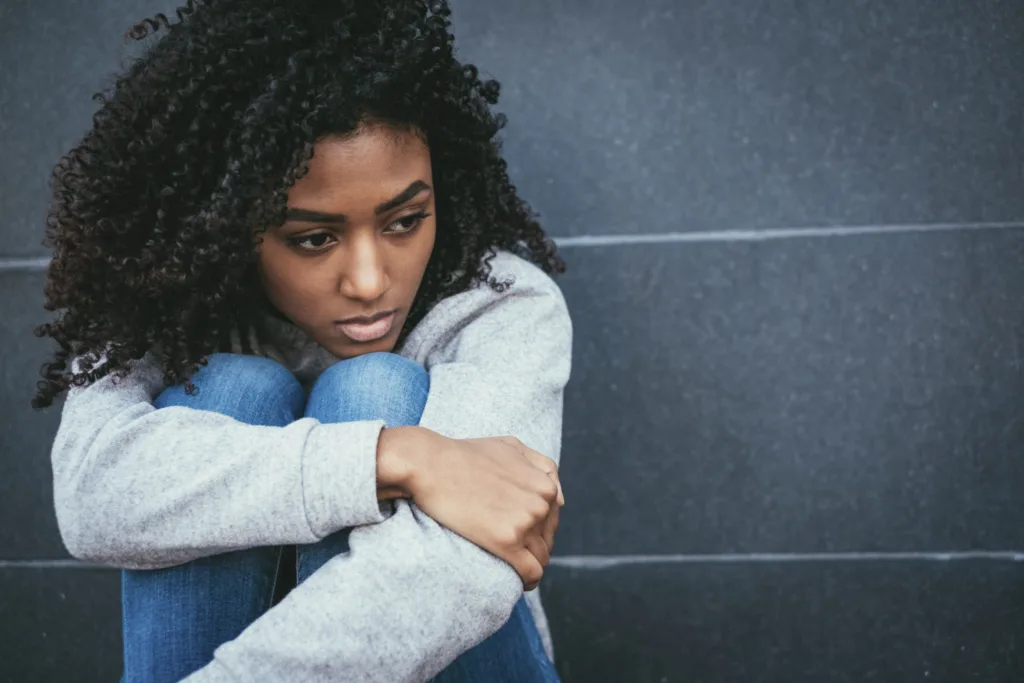
A common fear in those going through recovery (as well as those outside of their initial recovery, their friends and their family members) is the potential of a relapse happening.
After someone has had themselves as well as their lifestyle closely monitored for so long, independent sobriety can feel daunting. Relapse, however, does not happen by chance; it’s not random, and it’s not something you have to fear.
We know it can be tempting to think if they relapse, all hope is lost or that it’s a sign they failed, but it’s not. Failure only occurs when you give up. As long as you continue to get back up after you stumble, no matter how many times, you have not failed.
Two of the surest ways to prevent relapse are to set boundaries and foster healthy coping mechanisms. Do these things well, and you will ensure your sobriety.
To give you (or someone you know) their best shot at having a successful sobriety, we’re going to answer what does relapse mean and why do people relapse? We’ll also give you a list of some of the most common signs of a relapse so you can keep an eye on yourself and others.
What does relapse mean?
People sometimes define relapse differently, but the simplest definition we’re going to give you is that—relapse is the term for when someone with a past addiction picks up their old habits after a period of sobriety.
Some people believe that even the slightest break of your abstinence should be considered a relapse (say, having a beer at a social gathering). Most would agree, however, that a relapse is when someone re-develops their addictive behavior with the substance.
Why do people relapse?
It’s important to understand that a relapse can happen at any time in someone’s post-recovery journey, from as early as their first day of independence to as far down the road as a decade.
When someone relapses, their mindset typically gravitates to one of two directions: either they feel like a complete failure and that sobriety is impossible for them, or they don’t think it’s a big deal and disregard it as any sort of threat to their sobriety.
Both mindsets can be problematic. The former will prevent someone from seeking treatment to re-establish their sobriety, and the latter can easily lead someone to get pulled back to their old lifestyle, with them barely noticing.
Of course, the best treatment is no treatment; that’s why we’re going to share with you our best tips for how you can prevent relapsing altogether.
How to prevent relapse
The best ways to prevent a relapse from happening include:
- Taking care of yourself physically, mentally, spiritually, emotionally
- Avoiding triggering people and situations
- Continuing proactive treatment (such as therapy sessions)
- Staying active physically (daily movement) and mentally (a hobby)
- Develop grounding techniques, as well as healthy coping mechanisms
- Building a support system (this could be personal family and friends or a support group)
Relapsing is dangerous! With a relapse comes the potential to develop an addiction that’s stronger than before, and at the very worst, have a fatal overdose. This is why it’s important to be able to recognize the signs of relapse, as well as know where and when to seek help.
Signs of relapse in addiction
While you will already know if you personally relapsed, it’s important to be able to recognize these signs in a loved one.
The most common signs of relapse include:
- Poor hygiene and neglecting self-care
- Isolation and dramatic mood swings
- Substance-seeking behavior
- Avoiding sober activities
- Spending time in areas or around people associated with prior use
Though it’s difficult, you always have the ability to recover from a relapse, get back on track with your recovery and regain sobriety.
Reach out for professional guidance
If you think you or someone you know has relapsed, we’re here to help.
Our mission at Rehab After Work revolves around helping you gain and maintain sobriety so you can live your happiest, healthiest, most fulfilled life. We’ve created a team of compassionate people who are dedicated to walking with you every step of your journey to ensure you have the best recovery.
Some may be reluctant to seek treatment after a relapse due to feeling embarrassed or scared about their relapse, but you have no need to be. Many people experience at least one relapse in their journey to sobriety and, when you think about it, aren’t the most inspiring success stories about people who, even when they fall, continue to get back up?
When you’re ready to talk, we’ll be here to listen.
To speak with one of our qualified advisors and determine your next steps, submit this form or give us a call anytime at 610-644-6464.





